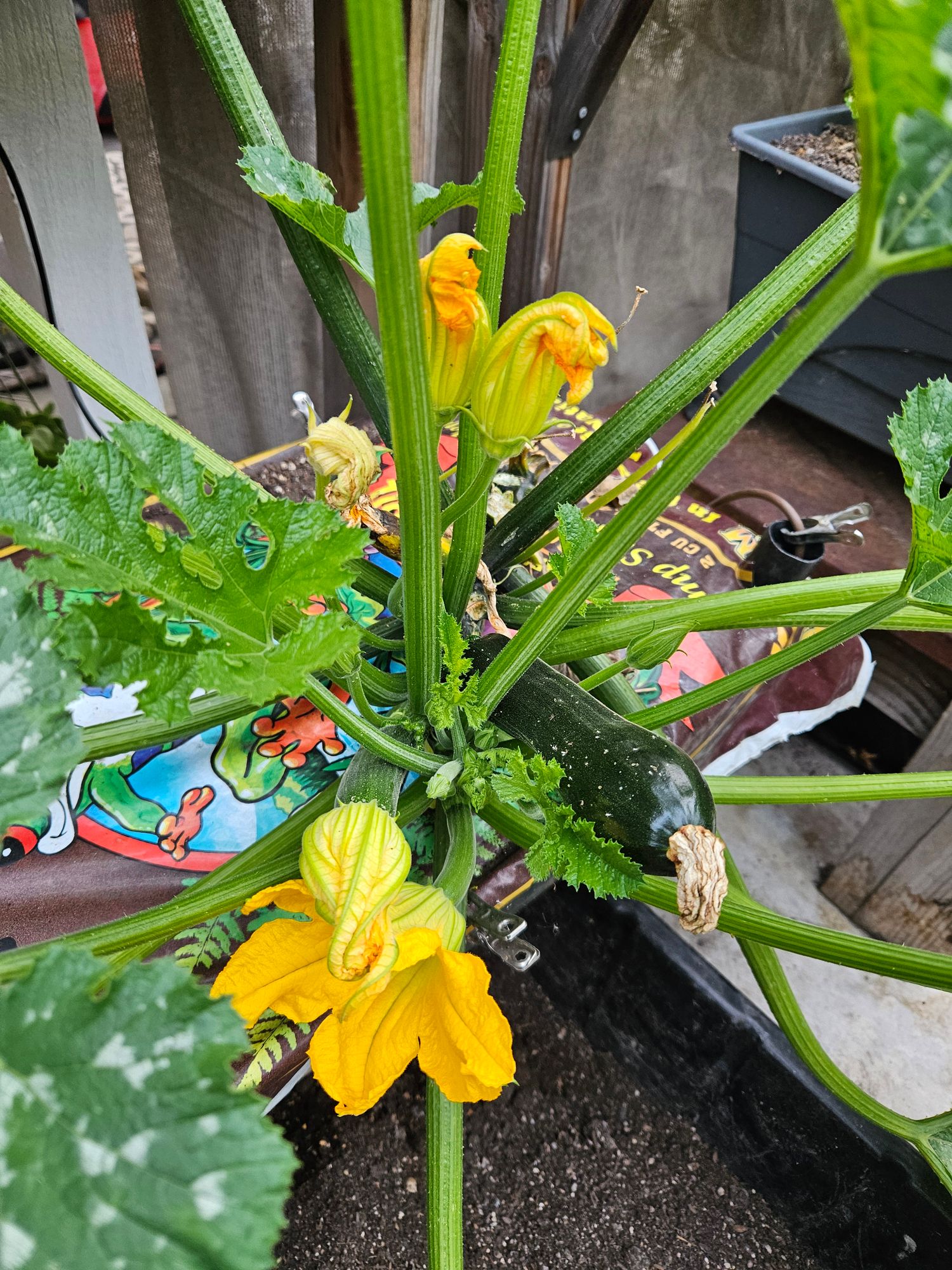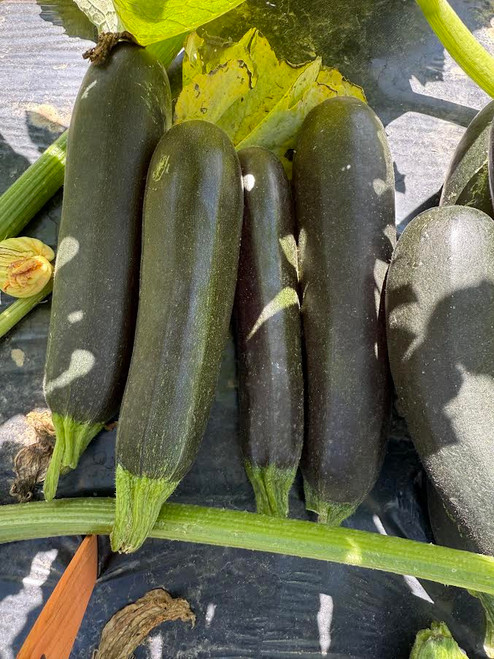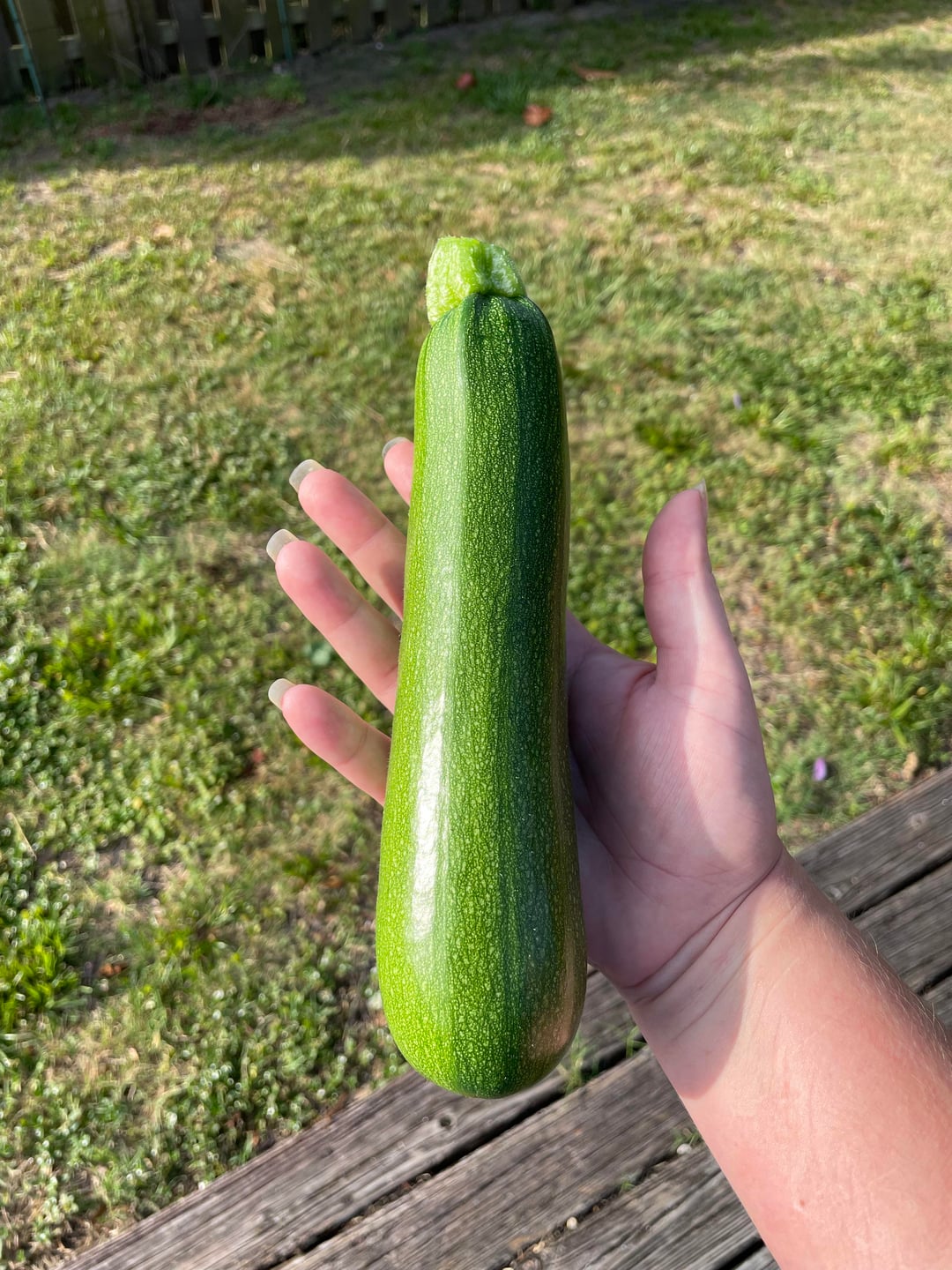If you’re growing zucchini in Florida, you know the struggle: heat, humidity, pests, and diseases can quickly turn your garden dreams into a frustrating battle. But what if you could choose zucchini plants that stand strong against these challenges?
The right disease-resistant zucchini varieties can make all the difference, giving you a bountiful harvest with less worry. In this guide, you’ll discover the best disease-resistant zucchini plants tailored for Florida’s unique climate. Ready to grow zucchini that thrives and tastes great?
Keep reading to find the perfect plants for your garden!

Credit: www.botanicalinterests.com
Climate Challenges In Florida
Florida’s climate is warm and humid most of the year. This creates a tough environment for growing zucchini. High heat and moisture can stress plants and encourage diseases. Gardeners must choose zucchini plants that can handle these conditions well.
The state’s long growing season means plants face many pests and diseases. Understanding these challenges helps in selecting the best disease-resistant zucchini plants. This knowledge leads to a healthier, more productive garden.
Heat And Humidity Effects
Florida’s heat often exceeds 90°F in summer. Such temperatures can cause zucchini plants to wilt. High humidity keeps leaves wet for long periods. This moisture helps fungi and bacteria grow quickly. Plants under heat stress produce fewer fruits and may stop growing.
Common Zucchini Diseases
Zucchini in Florida faces many diseases. Powdery mildew is very common and covers leaves with white patches. Bacterial wilt can kill plants fast after infection. Downy mildew causes yellow spots that spread quickly. Choosing resistant varieties reduces damage and saves crops.
Pest Pressure In Florida Gardens
Pests like squash bugs and cucumber beetles attack zucchini often. These insects feed on leaves and fruits. They also spread diseases. Aphids and whiteflies add to the pressure by sucking plant juices. Using disease-resistant plants helps reduce pest damage and improves plant health.
Key Traits Of Disease Resistant Zucchini
Choosing zucchini plants that resist disease is vital for Florida gardeners. The state’s warm, humid climate can encourage many common zucchini problems. Disease-resistant zucchini thrives better and produces more fruit. These plants save time and reduce the need for chemicals. Understanding their key traits helps pick the best varieties for a healthy garden.
Powdery Mildew Resistance
Powdery mildew is a common fungal disease in Florida gardens. It shows as white, powdery spots on leaves and stems. Resistant zucchini plants have a natural ability to stop this fungus. They keep leaves green and healthy longer. This resistance helps plants grow strong and produce fruit without damage.
Tolerance To Squash Bugs
Squash bugs are pests that suck plant juices and spread diseases. Tolerant zucchini plants can survive bug attacks better than others. These plants may have tougher leaves or produce chemicals that repel bugs. Tolerance means less damage and fewer bugs harming the crop. It leads to higher yields and less need for pest control.
Adaptation To Heat And Drought
Florida’s hot weather and dry spells challenge zucchini growth. Disease-resistant varieties also adapt well to heat and drought. They use water efficiently and stay healthy in tough conditions. This trait helps zucchini plants keep growing even with less rain. Gardeners get a steady harvest despite Florida’s climate challenges.
Top Zucchini Varieties For Florida
Choosing the right zucchini variety is key for Florida gardens. The warm climate and local pests need plants that can handle heat and resist diseases. Certain zucchini types thrive in Florida’s environment. These varieties offer good yields and need less care. They also fight off common zucchini problems. Here are some top zucchini choices that fit Florida’s unique conditions.
Alexandria: Heat-tolerant Choice
Alexandria zucchini stands out for its heat tolerance. It keeps growing well even in hot Florida summers. This variety resists powdery mildew and other common diseases. Its fruits are long, green, and tasty. Alexandria grows fast and produces high yields. It suits gardeners wanting a reliable zucchini in tough heat.
Tromboncino: Squash Bug Resistant
Tromboncino is a climbing zucchini with natural squash bug resistance. Squash bugs often damage zucchini in Florida. Tromboncino’s tough vines and leaves help keep these pests away. It produces long, curved fruits that taste sweet and mild. This variety also handles heat well. Its disease resistance reduces the need for chemicals.
Rugosa Friulana: Tough And Durable
Rugosa Friulana is known for its rugged leaves and strong vines. This toughness helps it resist pests and diseases common in Florida. It produces medium-sized fruits with a firm texture. The plant’s hardiness suits gardeners who face frequent weather changes. Rugosa Friulana also grows well with less water, perfect for dry spells.
Aehobak And Cucurbita Moschata Options
Aehobak, a Korean zucchini, grows well in Florida’s climate. It belongs to the Cucurbita moschata species, known for disease resistance. These zucchinis are softer-skinned and have a sweet flavor. They tolerate heat and resist common squash diseases. Choosing Aehobak or other Cucurbita moschata types can improve garden success. They offer variety and resilience for Florida growers.

Credit: www.holmesseed.com
Planting Schedule For Florida
Growing zucchini in Florida requires timing. The state’s warm climate affects plant growth and disease risks. Choosing the right planting schedule helps zucchini thrive. It also reduces common problems like powdery mildew and pests. Understanding Florida’s unique seasons is key to success.
Spring Planting Window
In North and Central Florida, plant zucchini from February to May. This period avoids the hottest months and high pest activity. Plants grow well before summer heat stresses them. Early planting helps produce a bigger, healthier harvest. Watch soil temperature and weather for the best results.
Fall Planting Window
Plant zucchini again in Florida from August through October. Fall offers cooler weather and fewer pests. This window gives a fresh crop after summer’s heat. Fall zucchini can grow strong without disease pressure. Use this time to extend your growing season effectively.
Direct Sowing Tips
Zucchini grows fast, so sow seeds directly into the soil. Choose a sunny spot with well-drained soil. Plant seeds about 1 inch deep and 2 to 3 feet apart. Keep soil moist until seeds sprout. Avoid transplanting, as zucchini dislikes root disturbance. Direct sowing saves time and encourages strong plants.
Growing Tips To Prevent Disease
Growing zucchini in Florida can be rewarding with the right care. Preventing disease is key to a healthy harvest. Proper growing methods reduce the risk of common zucchini problems. Follow these tips to keep your plants strong and productive.
Soil Preparation And Drainage
Healthy soil starts with good preparation. Choose well-draining soil to avoid water buildup. Zucchini roots need air as much as water. Add organic matter like compost to improve soil texture. This helps retain moisture without causing sogginess. Avoid planting in heavy clay soils that hold water. Raised beds work well for better drainage. Well-prepared soil supports strong root growth and disease resistance.
Watering Practices
Water zucchini plants carefully to prevent disease. Use drip irrigation or water at the base. Keep leaves dry to reduce fungal infections. Water in the morning to let plants dry during the day. Avoid overhead watering, especially in humid weather. Consistent moisture helps plants grow evenly. Overwatering causes root rot and other problems. Check soil moisture before watering again.
Crop Rotation And Companion Planting
Rotate zucchini with unrelated crops each season. This breaks the cycle of soil-borne diseases. Avoid planting zucchini in the same spot yearly. Companion plants like beans and marigolds can help. They improve soil health and repel pests. Crop rotation and companion planting keep your garden balanced. These methods reduce disease risk and boost zucchini growth.
Pest Management Strategies
Managing pests is key to growing healthy zucchini plants in Florida. Pests can damage leaves, stems, and fruits, reducing your harvest. Using smart pest management strategies helps protect your plants naturally and keeps your garden thriving.
Physical Barriers And Traps
Cover zucchini plants with row covers to block insects. These barriers stop pests like cucumber beetles and squash bugs from reaching the plants. Sticky traps catch flying pests early, preventing them from laying eggs. Use these tools early in the season for best results.
Natural Predators
Encourage beneficial insects like ladybugs and lacewings. They feed on harmful pests and reduce their numbers naturally. Plant flowers nearby to attract these helpful insects. This method keeps pest populations low without chemicals.
Organic Treatments
Use organic sprays such as neem oil or insecticidal soap to control pests. These treatments target pests but are safe for plants and the environment. Apply early in the morning or late in the day to avoid leaf burn. Repeat treatments as needed for best control.
Harvesting And Storage
Harvesting and storing zucchini properly helps maintain its quality and flavor. Picking zucchini at the right time ensures tender, delicious fruits. Good handling prevents damage, which can cause quick spoilage. Using the right storage methods keeps zucchini fresh longer. These steps are essential for gardeners in Florida who grow disease-resistant zucchini plants.
Best Time To Harvest
Harvest zucchini when they are small and tender. Usually, fruits between 6 and 8 inches long are ideal. Pick zucchini before the skin gets tough or seeds harden. Check plants every two to three days. Harvesting regularly encourages more fruit production. Morning is the best time to harvest, as vegetables are cool and firm.
Proper Handling
Handle zucchini gently to avoid bruises and cuts. Use sharp scissors or pruning shears to cut fruit from the plant. Leave a small stem attached to the zucchini to reduce moisture loss. Avoid stacking zucchini too high to prevent crushing. Clean hands and tools before harvesting to reduce disease spread.
Storage Methods To Extend Freshness
Store zucchini in a cool, dry place to keep it fresh. Refrigerate in a plastic bag with holes for air circulation. Avoid washing zucchini before storage; moisture speeds spoilage. Use zucchini within one week for best taste and texture. For longer storage, consider freezing or pickling zucchini after blanching.

Credit: www.syngentavegetables.com
Frequently Asked Questions
What Is The Best Zucchini For Central Florida?
The best zucchini for Central Florida is the heat- and disease-resistant Alexandria variety. It thrives in Florida’s climate and resists pests effectively. Plant from February to May or August to October for optimal growth and harvest.
When Should You Plant Zucchini In Florida?
Plant zucchini in Florida from February to May for spring harvest and August to October for fall harvest. Sow seeds directly in well-drained soil.
What Squash Is Fungus Resistant?
Acorn, butternut, and delicata squash varieties show strong resistance to fungal diseases like powdery mildew.
What Zucchini Varieties Are Resistant To Squash Bugs?
Tromboncino, Rugosa Friulana, Aehobak, and some Cucurbita moschata varieties show resistance to squash bugs. No zucchini is fully immune.
Conclusion
Choosing the right zucchini plants can make gardening easier in Florida. Disease-resistant varieties help reduce crop loss and save time. Plant seeds during cooler months for better growth and fewer pests. Regular care and proper watering also improve plant health.
Enjoy fresh zucchini from your garden all season long. Simple steps lead to a successful harvest every year. Growing zucchini can be fun and rewarding with the right choices.

